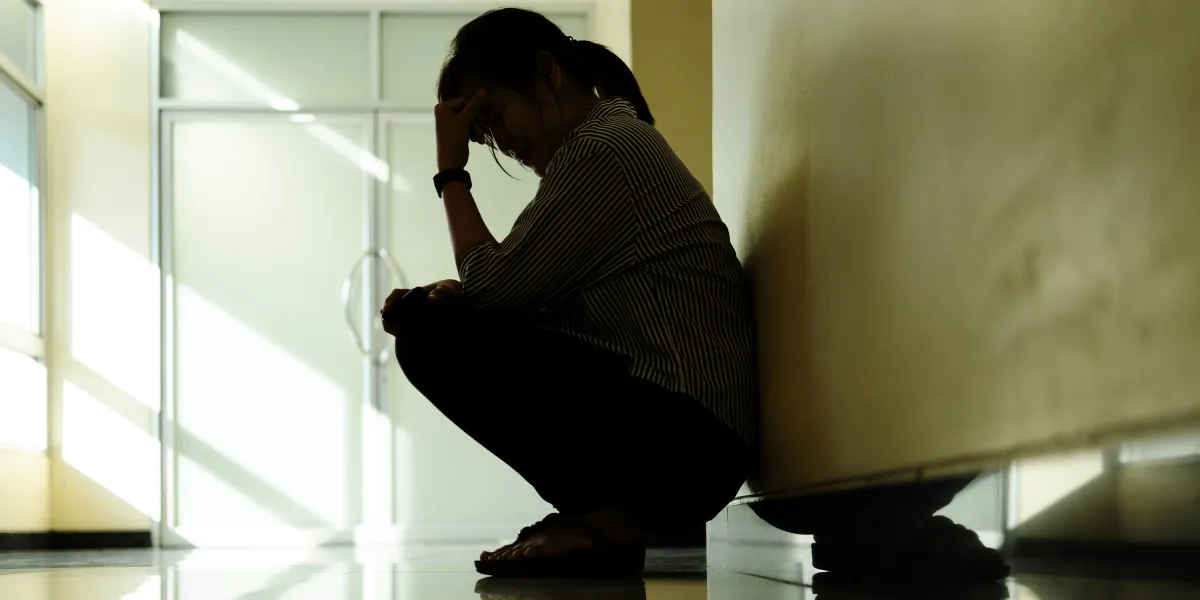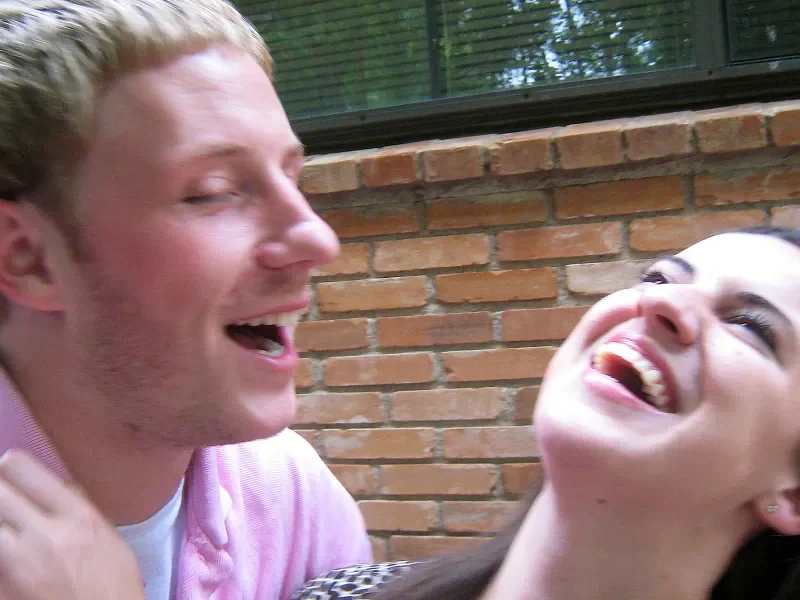I never imagined that the man my mother trusted with her heart would become the person who tried to steal her final moments from me. My stepfather tried his best to erase me from my mom’s life, but what she had been secretly planning was something he never saw coming.
My mom and I had always been inseparable.
From the time I was little, it was just the two of us against the world.
She’d pack us lunches and we’d have picnics in the living room during rainstorms. When I had nightmares, she’d let me sleep in her bed and tell me stories until I drifted off.
“You’re my best friend, sweetheart,” she used to tell me. “Always remember that.”
And I was.
She was the first person I called when something good happened, and the shoulder I cried on when life got tough.
When my biological father walked out on us during my senior year of high school, it only made our bond stronger.
I was 18 and devastated, but Mom held us together.
“It’s his loss,” she said, hugging me tight while we both cried. “We don’t need anyone who doesn’t want to be here.”
For two years, it really was just us.
I went to community college nearby so I could stay close to her. We made pancakes on Saturday mornings and watched movies on Thursday nights. We’d settled into a routine and were happy with what we had.
That’s why I was genuinely excited when she met Donald at her book club when I was 20.
“He seems really nice,” I told her after their third date. “And he makes you smile in a way I haven’t seen in a long time.”
Donald was 50, recently divorced, and worked in finance. He was polite, well-dressed, and seemed to genuinely care about making my mother happy.
In the beginning, he was wonderful to both of us.
“I hope you know I’m not trying to replace anyone,” he told me one evening over dinner. “I just want to add to this beautiful life you and your mom have built.”
To be honest, I liked him back then.
He brought Mom flowers every Friday, took her to nice restaurants, and always asked about my college classes. When they got engaged after dating for eight months, I couldn’t have been happier for them.
At their wedding, Mom looked radiant in her cream-colored dress, and Donald seemed like the devoted husband she deserved.
For the first year of their marriage, everything seemed wonderful.
Donald moved into our house, and we all settled into a comfortable routine. But gradually, I started noticing small things that made me uncomfortable.
Like how Donald would change the subject whenever Mom and I started reminiscing about old memories. Or how he’d suggest I should “give them some space” when I’d drop by unannounced, like I always had.
“Don’t you think Stacey should start becoming more independent?” I heard him ask Mom one evening when they thought I’d left.
“She’s always been independent,” Mom replied, but her voice sounded uncertain.
Then, there were the family photos.
Donald slowly started rearranging them, moving pictures of just Mom and me to less prominent spots and replacing them with wedding photos and pictures of the three of us, where he was positioned between us.
When I mentioned it to Mom, she just shrugged. “He’s just making the house feel more like ours together, sweetie. It doesn’t mean anything.”
But I could see it meant something to him.
I noticed the way his jaw would tighten when Mom and I had our inside jokes, and how he’d find reasons to interrupt our conversations.
However, I tried not to let it bother me.
After all, Mom seemed happy, and I loved seeing her with someone who treated her well. I figured Donald just needed time to adjust to our relationship.
Everything in our lives was moving along normally until the day that turned my world upside down.
It began when Mom called me at work.
“Honey, I need you to come with me to the doctor’s office this afternoon. They found something on my mammogram.”
My heart skipped a beat.
Three years earlier, when I was 21, Mom had been diagnosed with breast cancer. The treatment had been aggressive but successful, with surgery, chemotherapy, and radiation. The doctors had declared her cancer-free, and we’d celebrated like we’d won the lottery.
But now it was back. And this time, it was angry.
“It’s more aggressive than before,” Dr. Martinez explained during that terrible appointment. “It’s spread to her lymph nodes. We’re going to have to move fast.”
I held Mom’s hand so tightly I was probably hurting her, but she squeezed back just as hard. Donald sat on her other side, asking all the right questions about treatment options and prognosis.
That night, the three of us sat around the kitchen table, trying to process the news.
“We’re going to fight this,” Donald said firmly. “Whatever it takes.”
Mom nodded, but I could see the fear in her eyes. We all could.
“I’m scared,” she whispered.
“I know, Mom,” I said. “But we’re going to get through this together. All of us.”
Donald smiled and nodded, but something flickered across his face that I couldn’t quite read.
I should have paid more attention to that look. Because it was the beginning of something that would haunt me for days.
At first, I threw myself into helping Mom with her treatment. I took time off work to drive her to appointments, researched every possible treatment option online, and made sure she was eating properly during chemo.
“You don’t have to do all this, sweetie,” Mom said one afternoon as I helped her to bed after a particularly rough treatment session.
“Of course I do,” I said, pulling the blankets up to her chin. “We’re a team, remember?”
She smiled weakly and squeezed my hand. “Always.”
But after a few weeks, Donald started making suggestions that confused me.
“Maybe I should take her to the appointments from now on,” he said one evening while Mom was sleeping. “You get so worked up, Stacey. It might be better if she doesn’t have to worry about your emotions on top of everything else.”
“My emotions?” I said, trying to keep my voice down. “Donald, I’m her daughter. Of course I’m emotional about this.”
“I know, I know. But think about it… wouldn’t it be less stressful for her if she only had to focus on getting better, instead of taking care of your feelings too?”
The comment stung, but part of me wondered if he had a point. Mom had always been a worrier, and I had been crying a lot lately.
Maybe I was making things harder for her.
“If you really think it would help,” I said reluctantly.
“I do. Trust me on this.”
So, I started staying home during doctor visits.
I focused on other ways to help, like bringing Mom her favorite homemade soup, organizing her medications, and keeping the house clean.
I’d visit every day after work, and we’d watch old movies together or just talk.
But even those visits started feeling different.
Donald would hover nearby and keep making comments about how Mom needed her rest.
“Maybe you should let her sleep now, Stacey,” he’d say, even when Mom was clearly awake and enjoying our conversation.
“I’m fine, Donald,” Mom would say, but I could hear the tiredness in her voice.
Eventually, I started cutting my visits shorter, thinking I was being considerate.
It’s only now that I realize I was being manipulated.
As the months went by, Mom’s condition got worse.
The treatments weren’t working like they had before.
She was losing weight, sleeping more, and some days she barely had the energy to get out of bed.
“I think we need to talk about hospice care,” Dr. Martinez said during an appointment I wasn’t allowed to attend. Donald told me about it later.
“Hospice?” I said, feeling like the floor had dropped out from under me. “But she’s still fighting. She’s still—”
“She’s tired, Stacey,” Donald interrupted. “We need to think about what’s best for her now.”
Two weeks later, Mom was admitted to the hospital. Her breathing was labored, and she could barely stay awake for more than a few minutes at a time.
I tried to be there for her, but Donald made it impossible.
“She’s too weak for visitors right now,” he told me when I showed up that first day.
“I’m not a visitor,” I said. “I’m her daughter.”
“You get too emotional, Stacey. The nurses said it upsets her when people cry around her.”
I hadn’t even been crying. Not in front of her, anyway.
The next day, I brought flowers and tried again. This time, Donald wasn’t there, but the nurse stopped me at the door.
“I’m sorry, but your stepfather left specific instructions. He said you’re too emotional for visits right now.”
“That’s ridiculous,” I said. “She’s my mother. I have every right to see her.”
The nurse looked uncomfortable. “I’m just following orders. Maybe you could call him?”
I called Donald immediately.
“What the hell is going on?” I demanded.
“Look, I know this is hard,” he said in that calm tone I was learning to hate. “But she specifically asked me to keep visitors limited. She doesn’t want people to see her like this.”
“I’m not people! I’m her daughter!”
“She’s embarrassed, Stacey. She doesn’t want you to remember her this way.”
Every instinct in my body was screaming that he was lying, but what if he wasn’t? What if Mom really didn’t want to see me?
I tried calling her room directly, but Donald had apparently told the nurses not to put calls through either.
Every day I showed up, and every day I was turned away.
The last time I tried to see her, I was desperate.
I’d been blocked from her room for five days straight. I snuck up to her floor using the stairs and tried to slip past the nurses’ station.
But they were expecting me.
“Ma’am, you need to leave,” the nurse said, physically blocking the doorway to Mom’s room.
“Please,” I begged. “Just five minutes. She’s my mother.”
“Your stepfather said she forbade you to visit. Those were his exact words. I’m sorry, but if you don’t leave, I’ll have to call security.”
I could see Mom’s room from where I stood.
The door was cracked open just enough that I could make out her figure in the bed. She looked so small and fragile.
I wanted to push past the nurse and run to her, but I was afraid of causing a scene that might upset her.
So, I left. And I never saw my mother alive again.
Three days later, Donald called me at 6 a.m.
“She’s gone,” he said, his voice breaking. “She passed peacefully in her sleep about an hour ago.”
I collapsed on my kitchen floor and sobbed harder than I ever had in my life. Not just because she was gone, but because I hadn’t been there.
I never got to hold her hand or tell her I loved her one last time. I never got to say goodbye.
The funeral was a nightmare.
Donald played the perfect grieving widower, accepting condolences and hugs from everyone who came to pay their respects.
During his eulogy, he painted this picture of their perfect love story. He told everyone how devoted they’d been to each other.
He even talked about being by her side every single day until the end.
“She was the love of my life,” he said, dabbing at his eyes with a tissue. “I’m so grateful I got to be with her during her final moments. She died knowing how much she was loved.”
People were crying, nodding, and telling him what a wonderful husband he’d been. Meanwhile, I sat in the front row, feeling completely invisible.
After the service, people came up to Donald to tell him how sorry they were and how lucky Mom had been to have him.
“At least she wasn’t alone at the end,” my aunt whispered to me. “Donald made sure of that.”
At that point, I wanted to scream and tell everyone that he’d kept me away from her during her final days. But what was the point? She was gone, and nothing I said would bring her back.
I thought that was it. I thought he’d succeeded in erasing me from the most important moments of her life.
Until the will reading three days later.
Donald and I sat in the lawyer’s office while Mr. Peterson went through the basic provisions of Mom’s will.
He revealed the house would go to Donald, along with most of her savings and belongings. And honestly, I wasn’t surprised.
They’d been married for seven years, after all.
“However,” Mr. Peterson said, looking directly at me, “there’s a separate sealed letter addressed specifically to Stacey.”
He handed me a thick envelope with my name written in Mom’s familiar handwriting. My hands were shaking as I opened it.
The first thing I saw was a folded piece of paper with a note paperclipped to the front, “Read this first, sweetheart.”
I unfolded it and nearly gasped out loud when I saw what it was.
A deed to my childhood home.
It was the house where Mom and I had lived before Donald. She’d kept the house as a rental property but never sold it.
The documents said it had been transferred to my name two weeks before she died.
But it was the letter that made me start crying right there in the lawyer’s office.
“My dearest Stacey,” it began. “If you’re reading this, then I’m gone, and I’m guessing Donald tried to keep you away from me at the end. I know he’ll try to shut you out. He always hated how close we were. But I’ve already made my peace with that, because love leaves a trace he can’t erase.”
The letter went on to explain how Donald had been jealous of our relationship from the beginning, and how he’d been pressuring her to put distance between us for years. Mom also wrote how she’d pretended to go along with it to keep the peace but had been planning for this moment all along.
“I made secret arrangements weeks ago,” she wrote. “The house is yours. He can’t touch it. But there’s more. Look in the box.”
With trembling hands, I reached into the envelope and pulled out a small wooden box I recognized from my childhood. Inside were photos of us together, letters I’d written her over the years, and the locket she’d worn every day when I was little.
At the very bottom was a USB drive.
“What is this?” Donald demanded, trying to look over my shoulder.
Mr. Peterson cleared his throat. “Your wife made these arrangements privately, several weeks before her passing. Everything in that envelope belongs to Stacey exclusively.”
That night, I plugged the USB drive into my laptop with shaking hands.
And there she was.
My mom, sitting in her hospital bed, looking weak but determined. She must have recorded this secretly, probably when Donald had stepped out of the room.
“Hi, sweetheart,” she said. “If you’re watching this, then you know the truth now. I’m so sorry he kept you away from me. I tried to fight it, but I was too weak, and he convinced the nurses I was too sick for visitors. But I want you to know that I thought about you every single day. I loved you every single moment. And nothing he did could ever change that.”
She went on to tell me that she was proud of me and felt sorry that we couldn’t say goodbye properly.
“The house is yours now,” she said. “But more than that, all our memories and all our love… that’s yours too. He tried to erase you from my life, but he never could. Love finds a way, baby girl. It always finds a way.”
Tears blurred my vision as the video ended. I cried like a baby that night, wishing I could hug Mom one last time.
But even through the grief, I felt her love wrapped around me like a blanket.
She was gone, but she had found a way to hold my hand from beyond the veil. She had found a way to remind me that our bond was stronger than any silence.
Love like that doesn’t vanish. It lives on.
And now, whenever I step into the house she gave me, I don’t feel alone.
I feel her.
Everywhere.
I love you, Mom.


